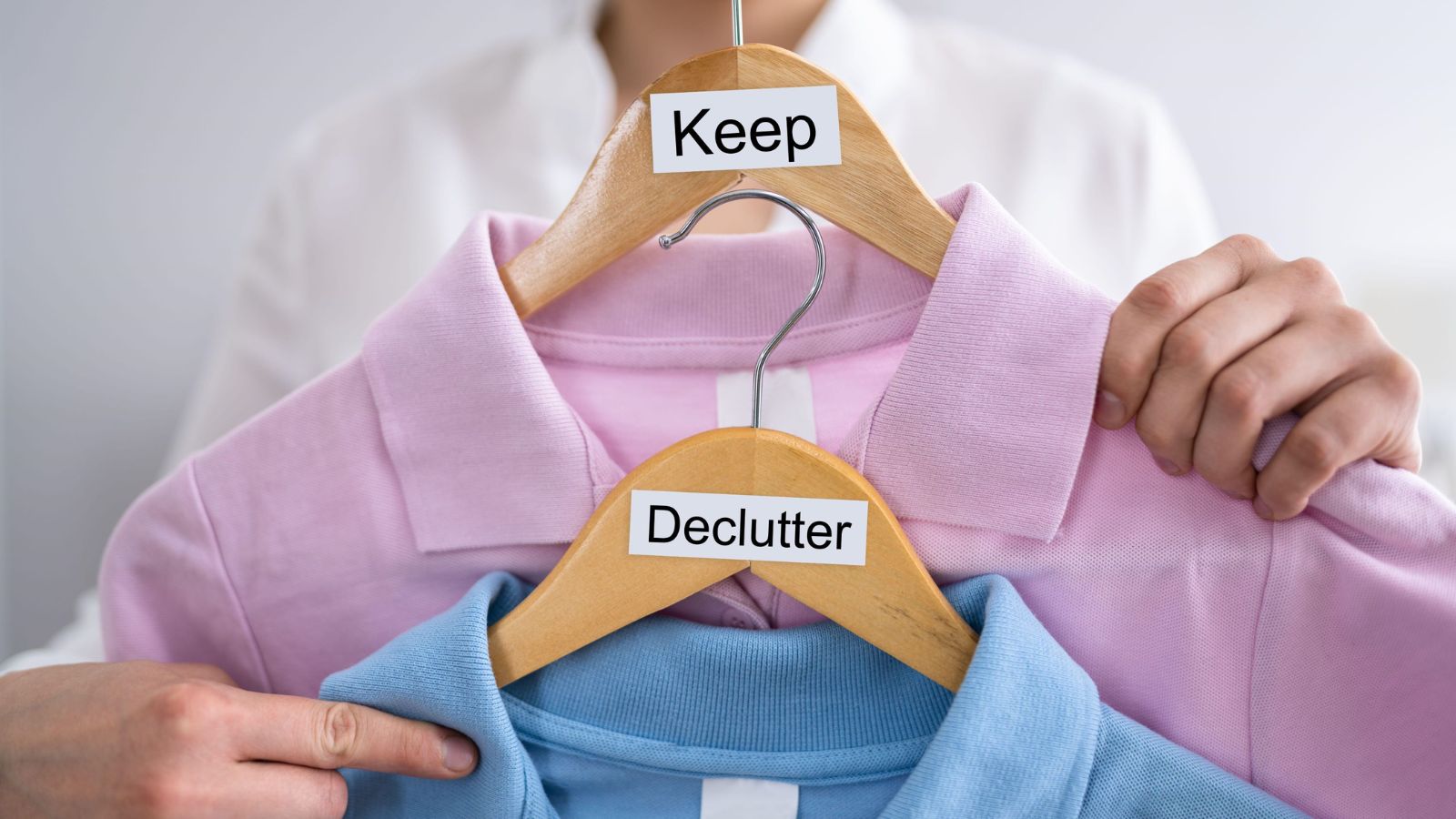
Design expertise in your inbox – from inspiring decorating ideas and beautiful celebrity homes to practical gardening advice and shopping round-ups.
You are now subscribed
Your newsletter sign-up was successful
Want to add more newsletters?

Twice a week
Homes&Gardens
The ultimate interior design resource from the world's leading experts - discover inspiring decorating ideas, color scheming know-how, garden inspiration and shopping expertise.

Once a week
In The Loop from Next In Design
Members of the Next in Design Circle will receive In the Loop, our weekly email filled with trade news, names to know and spotlight moments. Together we’re building a brighter design future.

Twice a week
Cucina
Whether you’re passionate about hosting exquisite dinners, experimenting with culinary trends, or perfecting your kitchen's design with timeless elegance and innovative functionality, this newsletter is here to inspire
If you want to know how can you declutter your home when you feel overwhelmed, you'll be relieved that getting started can be the biggest hurdle. But once you’ve made that first important step, you’ll find it gets easier and easier.
The key to beating clutter is making quick decisions. Should that item be kept? Does it have a home? What do I do with it if I don’t want it? This sounds simple enough, but decluttering can be hugely overwhelming, particularly if you haven’t done it a while or there’s emotional attachments involved. Many people fail to tackle the problem; if you don’t know how or when to start, it’s all too easy to just ignore it altogether.
That’s where we come in. With help from the experts, we’ve put together a step-by-step guide on how you declutter your home when you feel overwhelmed, including effective decluttering tips as well as top decluttering mistakes to avoid, so you can get the job done effectively, and perhaps even enjoy it, too.
How can you declutter your home when you feel overwhelmed?
Your home is your sanctuary, so when it’s looking messy, your mind probably feels a little muddled too – ’tidy home, tidy mind’, as the experts say. While it may feel overwhelming, tackling your decluttering tasks head on will create a sense of space and freedom – both literally, and emotionally. Experts agree that a clean house makes you feel happier and that a messy bedroom does affect sleep, after all.
‘Decluttering isn’t just a physical thing, it’s about decluttering your emotional space too. The most challenging part is getting started, but once you’re over that hurdle, you’ll start to feel much calmer’, says Elaine Penhaul, interiors expert and director of home staging company, Lemon & Lime Interiors.
1. Prep and plan
There’s something about having a written plan that takes the stress out of decluttering. Not only can you tick things off as you go (there’s nothing more satisfying), but you know that when life inevitably interrupts, you can pick things right back up again. Start by making a list of the areas in your home you want to declutter, then number them in order of priority.
‘Think about items that might help with the decluttering process and make sure you’ve got everything in before you begin – there’s nothing worse than having to stop mid-way because you’ve run out of garbage bags!
Design expertise in your inbox – from inspiring decorating ideas and beautiful celebrity homes to practical gardening advice and shopping round-ups.
‘If you know you will be throwing a lot away, consider ordering a skip in advance. Also look for ways to get rid of bigger items – charities are a good place to start (check they’re accepting donations first),' advises Elaine Penhaul.
2. Be flexible
Don’t confuse making a plan with setting yourself strict timelines. It’s okay to have a rough goal in mind, but avoid putting time pressures on yourself. Try and be realistic with how long your decluttering plans will take and don’t give up if they take a little longer than you expected.
3. Start with the easy tasks
It may feel like a good idea to tackle the biggest decluttering tasks first to get them out of the way, but it can be extremely overwhelming; particularly if you’ve not decluttered in a while. Starting with the easier tasks is far more productive.
Even ticking just one thing off your list – such as organizing a drawer or organizing a bookshelf – is better than nothing, and seeing a difference so quickly will provide an instant sense of achievement that will spur you on. Using the 20/20 rule for decluttering can make it much easier to be rid of smaller items that take up a ton of storage space.
'The idea of completing small projects with boundaries is that you’re setting yourself up for a win, which will motivate you to keep working on smaller chunks until eventually your entire space is organized!’ says Lucy Milligan Wahl, owner of boutique organizing company, LMW Edits.
4. Make sure you’re in the right mood
‘Starting with a positive mindset is really important. Keep in mind that it’s okay not to do it all, or get things perfect straight away. Visualizing how you’ll feel after decluttering a room can really help as well. Once you’ve achieved it, give yourself a pat on the back and note that buzz of satisfaction’, says professional life coach Ari Shaffer.
You can also try the reverse decluttering method to focus on the positives rather than what you need to get rid of.
5. Allocate chunks of time for decluttering
It can be hard to keep going when it feels like there’s no end in sight, and you will begin to wonder how you can continue decluttering when you start to feel overwhelmed. So, setting aside a small chunk of time each day can help reduce the feelings of being overwhelmed by creating a cut-off point; stick to it, whether you’ve completed the task or not.
‘Set a timer for 10-30 minutes and start looking for the items that are easier to remove: trash, empty cardboard boxes, items you need to return to someone, items that you know you don’t want or need. Continue to do this session by session, and you’ll gradually build confidence to make decisions on the more difficult items’, says Susan Santoro, professional organizer at Organized 31.
It’s important that you be flexible about when these decluttering sessions take place. Make sure they fit in around your schedule, so you don’t feel like they’re impinging on day-to-day life.
6. Have a goal in mind – and track your progress
Before tackling anything you’re slightly anxious about, decluttering included, it’s helpful to understand the reasons why you’re doing it. Is it to declutter the whole house or just one room? Perhaps you’d like to free up some storage space, or streamline your morning routine with a better-organized closet… whatever the goal, knowing it in advance will help you stay focused on the task in hand.
When you’re in the midst of a declutter, it can be difficult to remember what state things were in when you first started. Those goals you made can start to feel a long way off. Experts recommend taking ‘before’ photos, so you’ve got something to refer to if you start to feel like you’re not making progress. Take ‘after’ shots too; as well as highlighting your achievement, they’re a good reference point going forwards if things start to feel cluttered again.
7. Tackle one room at a time
Decluttering an entire house is a massive undertaking for anyone. Trying to take it all on in one go would be extremely overwhelming, and you’d likely find yourself giving up before you’d even begun – even professional declutterers wouldn’t attempt it!
‘Pushing ourselves to declutter our entire house in one day is definitely not the best way forward. Breaking it down into smaller chunks, a room for example, will keep you motivated and avoid those feelings of failure from creeping in’, says August Gawen, founder of Minimalist Living.
Deciding where to start with can be overwhelming in itself, but it’s important to remember there’s no right or wrong answer – it’s really up to you. However, according to Ari Shaffer, some rooms may be slightly less ‘emotional’ to deal with, than others.
‘A bathroom is usually one of the easiest rooms to start, as there’s less likely to be things of sentimental value in there. It’s easy enough to toss out expired toiletries, medicines and make-up you no longer want; once you’ve done that you’re half-way there already!’ she says.
8. Take a breather
‘If at any point you begin to feel overwhelmed, know first and foremost that it’s okay to feel that way. Pause and step away for a moment. Sometimes all you need is a breather – a cup of tea can make all the difference’, says Christina Giaquinto, professional organizer and brand ambassador of Modular Closets.
9. Go easy on yourself
For some, just the phrase ‘decluttering’ is enough to cause feelings of being overwhelmed. We all have strange attachments to things others might view as clutter – an old ticket from a family day out or a souvenir that remind you of a happy holiday… the thought of discarding sentimental items can be a huge trigger for stress and anxiety. Housekeeping perfectionism is not helpful in the long run.
Be kind to yourself – decluttering doesn’t mean you have to get rid of absolutely everything. What matters is finding a way to store them effectively. Set aside a sentimental storage box for pieces you can’t bear to part with. Limiting yourself to just one will help you to be more selective; those jeans you ‘might’ fit back into one day? They don’t count!
10. Ask for help
‘Some of us struggle with decluttering more than others, and that’s okay. In fact, all of us could use a little help with it sometimes. Enlisting friends and family to help is one way to make the task feel more manageable’, says August Gawen.
It’s worth noting that while friends and family might mean well, sometimes too many personal opinions can confuse matters and make the process more overwhelming than it needs to be. ‘If that’s something you’re concerned about, it might be easier to hire a professional home organizer that you don’t know; someone who’s non-judgemental and trained to work with you to achieve your own personal goals.
11. Make it fun
It may be overwhelming at times, but the process of decluttering can actually be really good fun, particularly if you’ve got helpers involved. Create a party atmosphere by sticking on some music and getting refreshments on the go – enjoy making new memories as you remember the old ones!
12. Reward yourself
‘Once you’ve completed a decluttering task, however small, reward yourself with something. Whether it’s a sweet treat, a night out or a well-deserved rest in front of the TV, the more you do this, the more you’ll associate decluttering with positive feelings’, says professional organizer Kathryn Lord of More to Organising.
How do you start decluttering when you feel overwhelmed?
Feelings of being overwhelmed when decluttering are often a result of being under-prepared for what’s coming, so don’t underestimate the power of a plan. As well as putting together a practical list (areas you want to declutter, items you’ll need to get the job done, etc), it can also help to jot down a few reasons why you want to do it – having some set goals can really help to spur you on, and you can refer back to them if you start to feel a little panicky at any point.
Don’t bite off more than you can chew – start with something small and easy, like a sock drawer or a spice rack. Dedicate a set chunk of time, no more than 30 minutes to start with, then stop, regardless of whether you’ve finished the chore or not. Decluttering shouldn’t get in the way of your day-to-day routine, so don't put any time pressure on yourself; a little bit each day is more than enough, and will lead to a well-organized home far more quickly than trying to do the whole lot at once, plus make for a less stressful experience overall.
How do you declutter when you want to keep everything?
If you’re a self-confessed hoarder, decluttering may be a harder process for you than for most. To enable yourself to let go of things, you’ll need to be really strict – and honest – with yourself.
Often things that were perfect for you and your lifestyle once may no longer work for you now – think exercise equipment, recipe books, clothing, and so on. Ask yourself whether you would buy these items again today. If the answer is no, you definitely don’t need them cluttering up your home.
Don’t be afraid to ask a friend or relative for help either. It’s often easier for someone else to see the reality of the situation when your emotion is holding you back from making a rational decision on what to do with an item.

For 10 years, Tara King worked as a Content Editor in the magazine industry, before leaving to become freelance, covering interior design, wellbeing, craft and homemaking. As well as writing for Ideal Home, Style at Home, Country Homes & Interiors, Tara’s keen eye for styling combined with a passion for creating a happy – and functional – family home has led to a series of organization and cleaning features for H&G.
